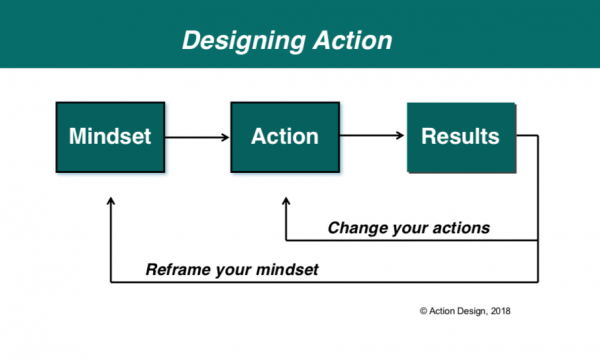Learning Loops
The last couple weeks, I’ve written about tools in the CEO toolbelt that I learned with my coach Marc years ago in a workshop called Action/Design — Inquiry vs. Advocacy, and The Ladder of Inference. The final post in this series is about Learning Loops (or Double Loop Learning if you prefer), popularized by Chris Argyris a couple decades ago.
Here’s the graphic on it:

What’s the tool in the CEO toolbelt here? It’s that every time you’re analyzing a result, you need to analyze it on two levels. Level 1 is the more obvious learning — “What happened…and what do I do next time to produce the same/a different result?” Level 2 is the less obvious learning — “Why did that result happen, and how do I need to think differently about the problem in the future?”
Think about how to apply this to a business result. You put a new pricing plan in place. Clients don’t bite. Loop 1 just gets you something like “ok, let’s try a different pricing plan.” But Loop 2 gets you “how did we come up with the pricing plan that failed in the first place…and how do we generate the next one so we don’t fail?”
Or think of how to apply this to a difficult conversation. You and your VP Eng on why a critical engineer left your organization abruptly. Your VP Eng is blaming Product for poor management of the agile process and product design; you believe it’s an issue of engineering team burnout. You can just go back and forth Advocating your points of view and maybe even Inquiring as to why those points of view exist, and even the powerful Ladder of Inference may not be able to help unless you have a great exit interview. Double Loop Learning is an offramp from that kind of conversation in that you can add that Level 2 questioning to the mix. It’s not about “what do we tweak so another engineer doesn’t leave tomorrow.” It’s “is there a systemic problem here with the way we produce product (or even broader – with our product/market fit) that doesn’t encourage the best team members to stay here?”
The best CEOs are the ones who are constantly listening, learning, adjusting, and executing. Hopefully these three principles — Learning Loops, Inquiry vs. Advocacy, and The Ladder of Inference will all help you on your journey.



